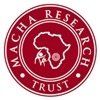FIA
Project Title: Flexible Serological Surveillance System in Zambia: Residual Specimens
Overall Principal Investigator: Dr. William Moss/Dr. Simon Mutembo
Local PI: Dr. PhillimonNdubani/Dr. Edgar Simulundu
The rationale of the study is to identify measles immunity gaps and provide opportunities for vaccination with measles-containing vaccines (MCVs). Identifying immunity gaps and monitoring interventions to fill them requires the availability of data in near real-time and the ability to rapidly collect additional data to verify results. One effective way to identify immunity gaps is utilizing IgG serological data that directly measures measles seroprevalence.
Overall Principal Investigator: Dr. William Moss/Dr. Simon Mutembo
Local PI: Dr. PhillimonNdubani/Dr. Edgar Simulundu
Local Study Coordinator: Hellen Matakala
The Flexible Immunity Assessment (FIA) study is a collaborative study between MRT, TDRC and JHU that entails the use of convenience samples as an important advance for developing a feasible and sustainable system for monitoring measles immunity and immunity to other vaccine-preventable diseases or emerging infections.
The rationale of the study is to identify measles immunity gaps and provide opportunities for vaccination with measles-containing vaccines (MCVs). Identifying immunity gaps and monitoring interventions to fill them requires the availability of data in near real-time and the ability to rapidly collect additional data to verify results. One effective way to identify immunity gaps is utilizing IgG serological data that directly measures measles seroprevalence.
Residual specimens were collected and are being tested to help assess potential biases in using residual blood sample collected at health facilities. Three antigens are being tested for antibodies against measles, tetanus toxoid and SARS-CoV-2.
The goal of the study is to assess the feasibility and utility of establishing a high quality, sustainable and flexible serosurveillance system in Zambia through demonstration projects in two districts of Choma and Ndola. Other specific objectives are to: Delineate facility characteristics suitable for a high-quality, sustainable, and flexible serosurveillance system in Zambia, such as patient volume, specimen storage capacity, and referral patterns.
- Assess the feasibility of establishing a high quality, sustainable and flexible serosurveillance system in Zambia through demonstration projects in two districts.
- Measure age-specific seroprevalence to measles virus and estimate whether seroprevalence is above 85% and 95% in the 1-4 and 5-14 year age groups, respectively.
- Assess potential biases of a residual blood surveillance system to represent a district population across socio-demographic and health status characteristics.
- Measure the seroprevalence to tetanus toxoid within a specified precision of ± 10% for children 1 to 14 years of age.
- Measure the seroprevalence to SARS-CoV-2 within a specified precision of ± 10% for children 1 to 14 years of age.
